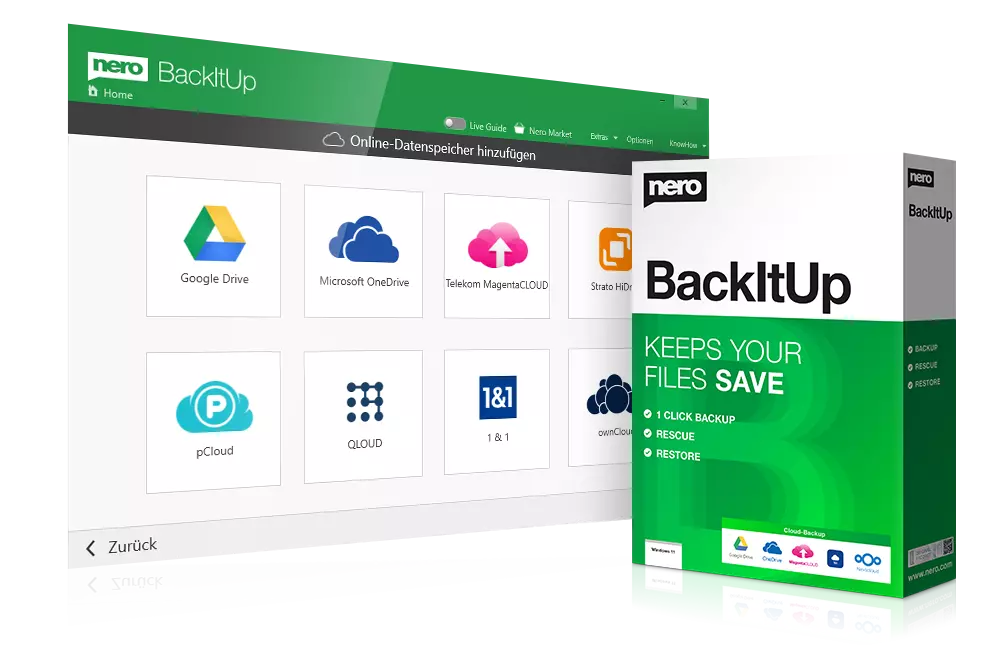![[Updated] 2024 Approved Diving Deep Into the Income of Ajey (CarryMinati)](https://thmb.techidaily.com/8f5cadb41c029899508ca6efd6723f50f45c76c5999800100c8f4f1fd518b7be.jpg)
"[Updated] 2024 Approved Diving Deep Into the Income of Ajey (CarryMinati)"

Diving Deep Into the Income of Ajey (CarryMinati)
If you have been following the who’s who of YouTube, then Ajey Nagar, also popularly known as CarryMinati is definitely not a new name for you and you must also be well aware of CarryMinati YouTube income. And, if you have not heard of this name before, then it is high time to know about this YouTube influencer who is an Asian and Indian sensation.
Getting excited, we too!!! So, in this article, we will learn all about who is Ajey Nagar, what is CarryMinati, what makes this man so popular, what is his CarryMinati monthly income, his personal life, and much more.
Part 1: Who is CarryMinati?
You may wonder who this simple-looking, young boy is, right?
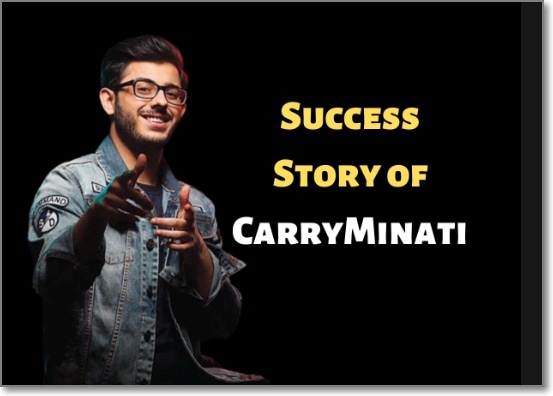
Yes, he is one of the India’s biggest YouTuber- Ajey Nagar. He shared a shoulder with Tom Cruise while promoting Mission Impossible 6 in Paris.
In this part of the topic, we are going to get deep knowledge about the personal, professional and financial information related to Carryminati.
| Nickname | CarryMinati |
|---|---|
| Real Name | Ajey Nagar |
| Net Worth (2022) | 31 Crores ($4 Million) |
| Monthly Income | Rs. 16+ Lakh |
| Yearly Income | Rs. 3+ Crore |
| Biography | |
| Date of Birth | 12th June 1999 |
| Gender | Male |
| Nationality | Indian |
| Height | 165 cm |
| Profession | YouTube |
| YouTube Channel | CarryMinati and CarryisLive |
| Awards and Recognition | Listed in TIME’s 10 next-generation leaders in the year 2019Listed in Forbes 30 Under 30 Asia in 2020 |
So, by now we know that CarryMinati aka Ajay Nagar is quite popular on YouTube. But, what does this popularity gets him in terms of money? Yes, this is an interesting question and the answer for this, you can check out in the next part of the topic.
Part 2: CarryMinati YouTube earning and stats
Let’s now deep digger into the financial aspects and other related stats related to CarryMinati. So, if you are eager to know how much CarryMinati earn from YouTube, we will give you to the nearest exact figures. Who does not like numbers, they are interesting facts, isn’tead.
A major part of Ajay Nagar’s income comes from YouTube videos and in addition to this, his popularity makes him earn from YouTube sponsors, collaborations, tie-up videos, brand endorsements, and advertising.
| Estimated Monthly Earnings in USD/Indian Rupees | Rs. 16+ Lakhs |
|---|---|
| Estimated yearly Earnings in USD/Indian Rupees | $ 4 Million/ Rs. 3+ Crores |
| Videos About | Roasting, Comedy, Sketches, Satire, and Gaming |
| Total Video Uploads | Over 176 |
| Subscribers | CarryMinati- 36.6millionCarryisLive- 11.3 million |
| Video Views | CarryMinati- 2.9 billion+CarryisLive- 1.3 billion+ |
| Last 30 Days Views | 35 M+ |
The statistics related to the views and income about CarryMinati are quite interesting and this makes everyone curious about what makes the channel and this person so popular on YouTube. If you too have been curious about the same, head to our next section.
Part 3: Why is Carry Minati trending on YouTube?
Just like the statistics, the facts related to CarryMinati’s popularity are equally interesting. Every YouTube channel or an influencer who is popular and trending have their own uniqueness and when it comes to CarrayMinati aka Ajay Nagar, there are several factors that makes him a sensation. Shortlisted some of them are as below.
Exclusive personality of Ajay Naga
Ajay Nagar has an exclusive personality that acts like a magnet that attracts viewers. His way of speaking and interacting with the audience has earned him a fan base across the globe.
Engaging and interactive video
The videos of CarryMinati are engaging and interactive which keeps the audience interested throughout.
Rib-tickling humour
The way the humour is added to the videos is simply amazing and definitely makes the viewers laugh a lot.
Relatable and authentic video content
Viewers of different ages and genres can easily relate to the videos created by CarryMinati and also found them to be authentic and different from the other channels.
Checkout his video on Social Media Culture that how interestingly he engages people with the relatable topics, and you will know what makes this man different from the others.
Most popular videos of CarryMinati
Though almost all videos by CarryMinati gain popularity, listed below are the top ones to date.
The End (The video was uploaded on 8th May 2020 and had over 65 million views with 8 lacs comments and over 10 million likes.) This was a roasting video by CarryMinati that gained immense popularity, but was later pulled down by YouTube stating it to be against the harassment policy of YouTube and for violating the guidelines of the community.
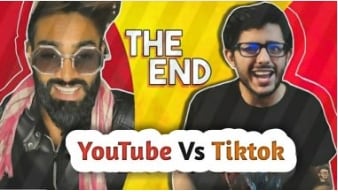
This video is about the Indian Film Industry and the awards given to the stars. Carryinati has interesting roasted the stars and receiving awards.
PUBG India: Life Battle Royale
https://www.youtube.com/embed/10y9yefd%5FxY
It is an interesting video of around 17 minutes where Ajay Nagar has acted along with other people to create a fun plot based of PUBG game.
Bonus Tip: How to be a YouTuber and Make Videos like Carryminati
We have learned that CarryMinati has become the name it is, all because of the excellent videos it creates. Though it may sound simple, video creation requires a lot of skills, patience, and the help of expert tools.
A lot of people have some excellent themes and ideas in their minds, but they do not know how to weave them all into an interesting video and here the need for an expert tool like Wondershare Filmora arises. So, if you also have some video creation plans in mind but have been holding them back, it’s time to bring them to reality using Filmora.
Wondershare Filmora is an excellent Windows and Mac-based software that helps in creating eye-catchy videos using multiple features supported by the program. From basic to advanced, no matter what type of video creation requirements you are looking for, Wondershare Filmora will take due care of the same.
Key features of the software
- Support to all types of video files and formats including 4K and also comes with a huge collection of stock footage.
- Support advanced features like PIP, green screen, split-screen, AI portrait, auto reframe, screen recorder, speed ramping, masking, and more.
- Allows adding visual effects and transitions and also allows uploading the created videos to YouTube and Facebook.
Wondershare Filmora supports a wide range of video editing features including basic editing, advanced editing, AI-based tools, and much more. The complete features can be checked in the Wondershare Filmora Video Editing Guide.
AI-based features are the highlight of this software and for your reference, listed below are the steps for the AI Portrait function. Using this feature, the background of a video can be removed easily without using the green screen or the chroma key.
Steps to use AI Portrait in Wondershare Filmora
Free Download For Win 7 or later(64-bit)
Free Download For macOS 10.14 or later
Step1 Launch the installed software on your system and add the media file to the software timeline.
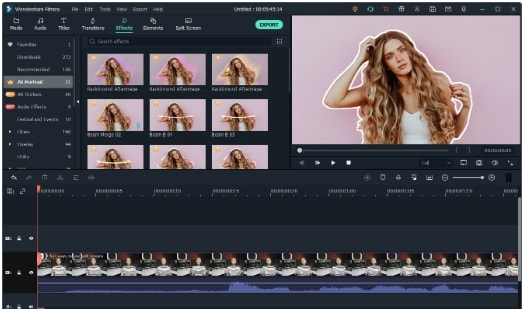
Step2 Next, go to Effects > Ai Portrait, and the options of the features can be checked here. Click on the thumbnail and the feature can be viewed in the preview window.
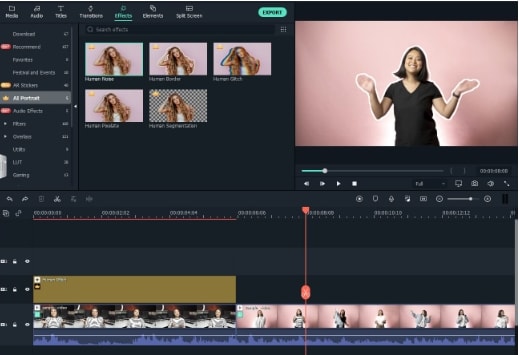
Step3 Drag the selected Portrait to the timeline and from the pop-up window choose to Purchase the additional module. You can check the result by playing the video. If needed multiple AI Portraits can be added to the video.
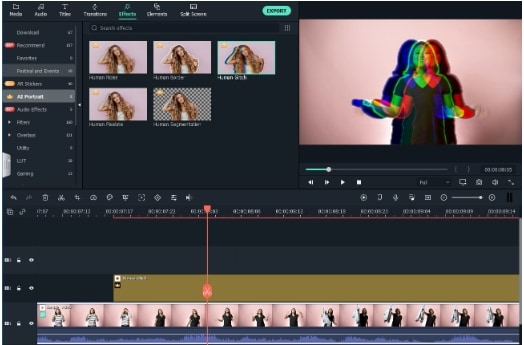
Step4 If further customization is needed, you can even adjust the AI Portrait settings.
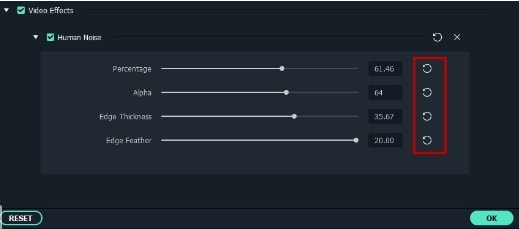
Step5 When finally, all the settings are done, click on the Export button to save the file.
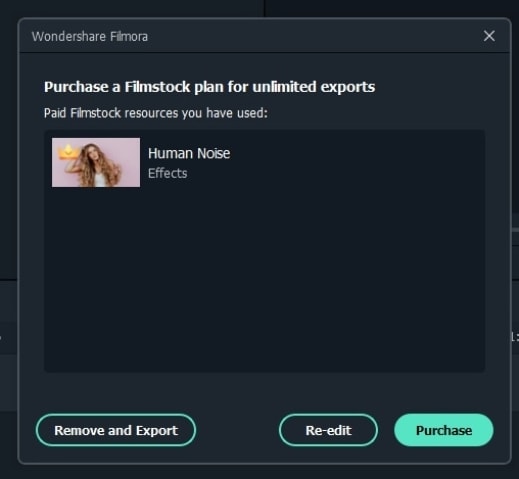
Hot FAQs on CarryMinati
Below we have answered some hot frequently asked questions about CarryMinati.
1. Is Carry Minati married?
No, till date, CarryMinati aka Ajay Nagar is not married.
2. How much CarryMinati earn from 1 video?
Calculating the income from a YouTube video can be a complicated task that depends on several factors like views, likes, ads in the video, and more.
3. Which actors has Carry Minati interviewed?
Carry Minati has interviewed popular actors like Tom Cruise, Tessa Thompson, Henry Cavil, and others celebrities.
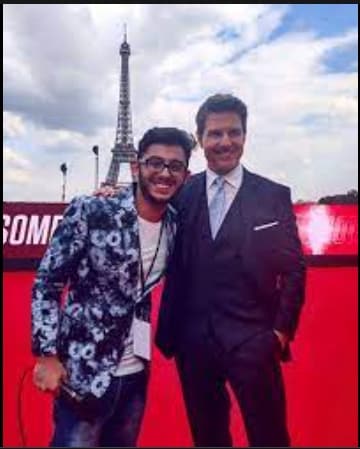
 Power Tools add-on for Google Sheets, 12-month subscription
Power Tools add-on for Google Sheets, 12-month subscription
Final Words
Gone are the days when only high posts at big-shot companies can bring in money and proving this right is CarryMinati who is not only earning big but has also earned worldwide fans and has created a name for himself. With his comic skits and engaging videos, this popular YouTube influencer is growing and stretching his wings.
If you too have got inspired and looking forward to starting with some interesting videos, we suggest downloading Wondershare Filmora which will let you create a professional video with ease.
Free Download For Win 7 or later(64-bit)
Free Download For macOS 10.14 or later
So, by now we know that CarryMinati aka Ajay Nagar is quite popular on YouTube. But, what does this popularity gets him in terms of money? Yes, this is an interesting question and the answer for this, you can check out in the next part of the topic.
Part 2: CarryMinati YouTube earning and stats
Let’s now deep digger into the financial aspects and other related stats related to CarryMinati. So, if you are eager to know how much CarryMinati earn from YouTube, we will give you to the nearest exact figures. Who does not like numbers, they are interesting facts, isn’tead.
A major part of Ajay Nagar’s income comes from YouTube videos and in addition to this, his popularity makes him earn from YouTube sponsors, collaborations, tie-up videos, brand endorsements, and advertising.
| Estimated Monthly Earnings in USD/Indian Rupees | Rs. 16+ Lakhs |
|---|---|
| Estimated yearly Earnings in USD/Indian Rupees | $ 4 Million/ Rs. 3+ Crores |
| Videos About | Roasting, Comedy, Sketches, Satire, and Gaming |
| Total Video Uploads | Over 176 |
| Subscribers | CarryMinati- 36.6millionCarryisLive- 11.3 million |
| Video Views | CarryMinati- 2.9 billion+CarryisLive- 1.3 billion+ |
| Last 30 Days Views | 35 M+ |
The statistics related to the views and income about CarryMinati are quite interesting and this makes everyone curious about what makes the channel and this person so popular on YouTube. If you too have been curious about the same, head to our next section.
Part 3: Why is Carry Minati trending on YouTube?
Just like the statistics, the facts related to CarryMinati’s popularity are equally interesting. Every YouTube channel or an influencer who is popular and trending have their own uniqueness and when it comes to CarrayMinati aka Ajay Nagar, there are several factors that makes him a sensation. Shortlisted some of them are as below.
Exclusive personality of Ajay Naga
Ajay Nagar has an exclusive personality that acts like a magnet that attracts viewers. His way of speaking and interacting with the audience has earned him a fan base across the globe.
Engaging and interactive video
The videos of CarryMinati are engaging and interactive which keeps the audience interested throughout.
Rib-tickling humour
The way the humour is added to the videos is simply amazing and definitely makes the viewers laugh a lot.
Relatable and authentic video content
Viewers of different ages and genres can easily relate to the videos created by CarryMinati and also found them to be authentic and different from the other channels.
Checkout his video on Social Media Culture that how interestingly he engages people with the relatable topics, and you will know what makes this man different from the others.
Most popular videos of CarryMinati
Though almost all videos by CarryMinati gain popularity, listed below are the top ones to date.
The End (The video was uploaded on 8th May 2020 and had over 65 million views with 8 lacs comments and over 10 million likes.) This was a roasting video by CarryMinati that gained immense popularity, but was later pulled down by YouTube stating it to be against the harassment policy of YouTube and for violating the guidelines of the community.

This video is about the Indian Film Industry and the awards given to the stars. Carryinati has interesting roasted the stars and receiving awards.
PUBG India: Life Battle Royale
https://www.youtube.com/embed/10y9yefd%5FxY
It is an interesting video of around 17 minutes where Ajay Nagar has acted along with other people to create a fun plot based of PUBG game.
Bonus Tip: How to be a YouTuber and Make Videos like Carryminati
We have learned that CarryMinati has become the name it is, all because of the excellent videos it creates. Though it may sound simple, video creation requires a lot of skills, patience, and the help of expert tools.
A lot of people have some excellent themes and ideas in their minds, but they do not know how to weave them all into an interesting video and here the need for an expert tool like Wondershare Filmora arises. So, if you also have some video creation plans in mind but have been holding them back, it’s time to bring them to reality using Filmora.
Wondershare Filmora is an excellent Windows and Mac-based software that helps in creating eye-catchy videos using multiple features supported by the program. From basic to advanced, no matter what type of video creation requirements you are looking for, Wondershare Filmora will take due care of the same.
Key features of the software
- Support to all types of video files and formats including 4K and also comes with a huge collection of stock footage.
- Support advanced features like PIP, green screen, split-screen, AI portrait, auto reframe, screen recorder, speed ramping, masking, and more.
- Allows adding visual effects and transitions and also allows uploading the created videos to YouTube and Facebook.
Wondershare Filmora supports a wide range of video editing features including basic editing, advanced editing, AI-based tools, and much more. The complete features can be checked in the Wondershare Filmora Video Editing Guide.
AI-based features are the highlight of this software and for your reference, listed below are the steps for the AI Portrait function. Using this feature, the background of a video can be removed easily without using the green screen or the chroma key.
Steps to use AI Portrait in Wondershare Filmora
Free Download For Win 7 or later(64-bit)
Free Download For macOS 10.14 or later
Step1 Launch the installed software on your system and add the media file to the software timeline.

Step2 Next, go to Effects > Ai Portrait, and the options of the features can be checked here. Click on the thumbnail and the feature can be viewed in the preview window.

Step3 Drag the selected Portrait to the timeline and from the pop-up window choose to Purchase the additional module. You can check the result by playing the video. If needed multiple AI Portraits can be added to the video.

Step4 If further customization is needed, you can even adjust the AI Portrait settings.

Step5 When finally, all the settings are done, click on the Export button to save the file.
 dotConnect for Oracle is an ADO.NET data provider for Oracle with Entity Framework Support.
dotConnect for Oracle is an ADO.NET data provider for Oracle with Entity Framework Support.

Hot FAQs on CarryMinati
Below we have answered some hot frequently asked questions about CarryMinati.
1. Is Carry Minati married?
No, till date, CarryMinati aka Ajay Nagar is not married.
2. How much CarryMinati earn from 1 video?
Calculating the income from a YouTube video can be a complicated task that depends on several factors like views, likes, ads in the video, and more.
3. Which actors has Carry Minati interviewed?
Carry Minati has interviewed popular actors like Tom Cruise, Tessa Thompson, Henry Cavil, and others celebrities.

Final Words
Gone are the days when only high posts at big-shot companies can bring in money and proving this right is CarryMinati who is not only earning big but has also earned worldwide fans and has created a name for himself. With his comic skits and engaging videos, this popular YouTube influencer is growing and stretching his wings.
If you too have got inspired and looking forward to starting with some interesting videos, we suggest downloading Wondershare Filmora which will let you create a professional video with ease.
Free Download For Win 7 or later(64-bit)
Free Download For macOS 10.14 or later
Mastering the Art of Using CC Copyrights Wisely
How to Use Creative Commons Copyright Licenses [Complete Guide]

Richard Bennett
Oct 26, 2023• Proven solutions
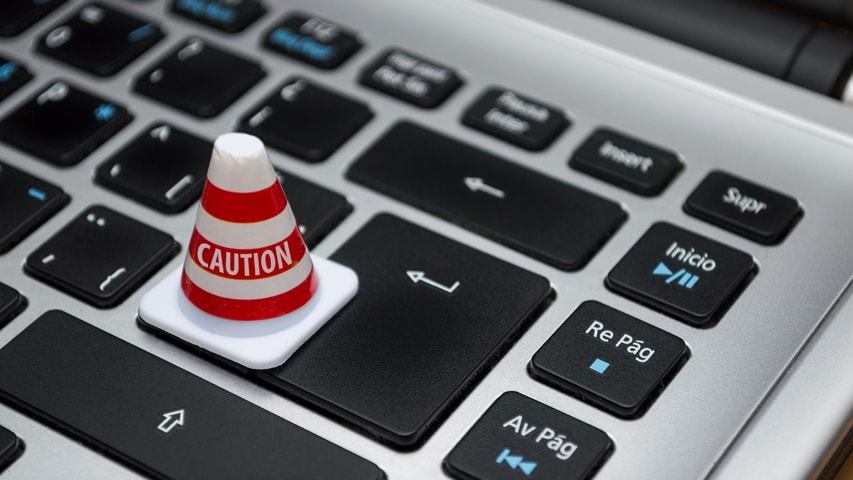
You might have noticed that, when you post a video, you get to choose how you want to copyright it: standard license, or creative commons. You’ve also probably noticed that when you looking for royalty-free music or stock footage a lot of it is licensed through creative commons.
So, what exactly are creative commons ?
To hold the copyright to a creative work means that you own it, and anybody who wants to use your work for anything (i.e. uses a song you composed in their YouTube video) has to do so on your terms. When you license your work through creative commons you do not give up your rights to your creative work (a common misconception).
When you use a creative commons license you are outlining the terms under which other creators are allowed to use your creations in their projects for free if they credit you for your work.
If you do not want anyone using your work for free in any context, you stick to traditional copyrighting.
But if you’ve created a piece of music, a photograph, or a clip that you wouldn’t mind other people using, potentially as a way to get your name out there, you might want to consider creative commons.
There are 6 different creative commons licenses. Which is right for you will depend on your answers to these two questions:
Are you okay with a creator making money off of something they create using your work?
Are you okay with a creator producing a derivative of your work?
To say ‘no derivatives’ is to say ‘I’m okay with people using it, so long as they don’t change it’. One example of a derivative is a techno remix of a song. If you are alright with other creators making derivatives of your work, you may also want to require them to ‘ShareAlike’. ShareAlike means that the creator of that techno remix of your song has to use the same creative commons license you used for your original to distribute the remix.
An example of a derivative someone might make of a YouTube video would be auto-tuning it to make a song or cutting up your video to make one that’s just ‘the funny parts’.
Here are the 6 creative commons licenses, and a chart you can use as a quick reference tool.
Attribution – CC BY
If you’re using music or other media with this license, all you need to do is credit the artist.
If you license your video this way, people can do whatever they like with any element of it (video or sound) so long as they credit you. I.e. if someone wanted to mute your clips and use you as stock footage in a bigger project, they could.
Attribution-ShareAlike – CC BY-SA
If you use music, photos, or any other media licensed this way, then you must both credit the artist and license your video this same way. Meaning, you can’t use YouTube’s standard license and must instead allow for others to use your work the way you are using the licensed media.
If you apply this license to your video, you’re saying you don’t mind people using all or portions of your video for their project so long as they allow others to use their work in the same way.
Attribution-NoDerivs – CC BY-ND
This one can get tricky.
Essentially, you can use media licensed this way so long as you don’t alter it or create a different version. For example, you can’t take a song licensed this way and use it in a mashup with another song. That part is clear. Where it gets tricky is when you want to use a song in your video.
Under normal copyright rules, using a royalty-free song in the background of your video would not count as creating a derivative. The definition of derivative according to creative commons is a bit broader and includes ‘syncing’. This means you can’t take an ‘Attribution-NoDerivs’ song and create any kind of music video for it.
For example, you can’t edit clips of yourself snowboarding so that they’re in sync with a song that has this license.
Whether or not you can play the song in the background of your vlog while you are speaking can be a bit of a grey area. In theory, it shouldn’t be a problem, but if you’re accessing the music through a social site like SoundCloud then it might be best to ask the artist first.
There’s no reason to license your YouTube videos this way. If people cannot alter your video, all that’s left is for them to repost it. Even though they’d also be crediting you, they’d still essentially be stealing views and ad revenue from your original video.
Attribution-NonCommercial – CC BY-NC
If you’re using stock footage, music, or stock photos licensed this way then you should still be able to monetize your video. YouTube monetization and commercial use are different things. However, there is a lot of confusion about this issue, and chances are the rights holder intends for this license to mean ‘no monetization’.
What you definitely could not do with a NonCommercial license is to use the song/other media in an actual commercial for a product, including product placement that a brand is paying you for.
If you license your video this way, people can use it in whatever way they like so long as they credit you and don’t try to make money off of it. Once again, that doesn’t mean they can’t use it in a YouTube video which they monetize because, technically, they’d be making money off of the ad that ran ahead of the video and not the video itself.
The thing to be careful of with this license is that it’s not ‘ShareAlike’. So, if you license your video this way somebody could use your clips as stock footage and then provide them - as part of their project – for free to a third person to use in a project they were making money off of.
Attribution-NonCommercial-ShareAlike – CC BY-NC-SA
Music and other media with an ‘Attribution-NonCommercial-ShareAlike’ license can be used in and altered for your videos, so long as you aren’t making money off those videos. You must also use this same license for the video you create using elements licensed this way.
If you license your video this way, people can use it or a portion of it in their project if they credit you. They must also use this same license for their video if they do. This protects you from the situation where a third person who never licensed your original content is making money off of it.
Attribution-NonCommercial-NoDerivs – CC BY-NC-ND
There aren’t many situations where you would be using media licensed this way in your YouTube videos. You can’t alter it, sync videos to it, or make money from any video that uses it.
You also probably shouldn’t use this license for your videos. ‘NoDerivs’ means there are not many ways people could use your content, except to repost full videos and steal your views.
Edit Video with the Most Excellent Video Editor

Richard Bennett
Richard Bennett is a writer and a lover of all things video.
Follow @Richard Bennett
Richard Bennett
Oct 26, 2023• Proven solutions

You might have noticed that, when you post a video, you get to choose how you want to copyright it: standard license, or creative commons. You’ve also probably noticed that when you looking for royalty-free music or stock footage a lot of it is licensed through creative commons.
So, what exactly are creative commons ?
To hold the copyright to a creative work means that you own it, and anybody who wants to use your work for anything (i.e. uses a song you composed in their YouTube video) has to do so on your terms. When you license your work through creative commons you do not give up your rights to your creative work (a common misconception).
When you use a creative commons license you are outlining the terms under which other creators are allowed to use your creations in their projects for free if they credit you for your work.
If you do not want anyone using your work for free in any context, you stick to traditional copyrighting.
But if you’ve created a piece of music, a photograph, or a clip that you wouldn’t mind other people using, potentially as a way to get your name out there, you might want to consider creative commons.
There are 6 different creative commons licenses. Which is right for you will depend on your answers to these two questions:
Are you okay with a creator making money off of something they create using your work?
Are you okay with a creator producing a derivative of your work?
To say ‘no derivatives’ is to say ‘I’m okay with people using it, so long as they don’t change it’. One example of a derivative is a techno remix of a song. If you are alright with other creators making derivatives of your work, you may also want to require them to ‘ShareAlike’. ShareAlike means that the creator of that techno remix of your song has to use the same creative commons license you used for your original to distribute the remix.
An example of a derivative someone might make of a YouTube video would be auto-tuning it to make a song or cutting up your video to make one that’s just ‘the funny parts’.
Here are the 6 creative commons licenses, and a chart you can use as a quick reference tool.
Attribution – CC BY
If you’re using music or other media with this license, all you need to do is credit the artist.
If you license your video this way, people can do whatever they like with any element of it (video or sound) so long as they credit you. I.e. if someone wanted to mute your clips and use you as stock footage in a bigger project, they could.
Attribution-ShareAlike – CC BY-SA
If you use music, photos, or any other media licensed this way, then you must both credit the artist and license your video this same way. Meaning, you can’t use YouTube’s standard license and must instead allow for others to use your work the way you are using the licensed media.
If you apply this license to your video, you’re saying you don’t mind people using all or portions of your video for their project so long as they allow others to use their work in the same way.
Attribution-NoDerivs – CC BY-ND
This one can get tricky.
Essentially, you can use media licensed this way so long as you don’t alter it or create a different version. For example, you can’t take a song licensed this way and use it in a mashup with another song. That part is clear. Where it gets tricky is when you want to use a song in your video.
Under normal copyright rules, using a royalty-free song in the background of your video would not count as creating a derivative. The definition of derivative according to creative commons is a bit broader and includes ‘syncing’. This means you can’t take an ‘Attribution-NoDerivs’ song and create any kind of music video for it.
For example, you can’t edit clips of yourself snowboarding so that they’re in sync with a song that has this license.
Whether or not you can play the song in the background of your vlog while you are speaking can be a bit of a grey area. In theory, it shouldn’t be a problem, but if you’re accessing the music through a social site like SoundCloud then it might be best to ask the artist first.
There’s no reason to license your YouTube videos this way. If people cannot alter your video, all that’s left is for them to repost it. Even though they’d also be crediting you, they’d still essentially be stealing views and ad revenue from your original video.
Attribution-NonCommercial – CC BY-NC
If you’re using stock footage, music, or stock photos licensed this way then you should still be able to monetize your video. YouTube monetization and commercial use are different things. However, there is a lot of confusion about this issue, and chances are the rights holder intends for this license to mean ‘no monetization’.
What you definitely could not do with a NonCommercial license is to use the song/other media in an actual commercial for a product, including product placement that a brand is paying you for.
If you license your video this way, people can use it in whatever way they like so long as they credit you and don’t try to make money off of it. Once again, that doesn’t mean they can’t use it in a YouTube video which they monetize because, technically, they’d be making money off of the ad that ran ahead of the video and not the video itself.
The thing to be careful of with this license is that it’s not ‘ShareAlike’. So, if you license your video this way somebody could use your clips as stock footage and then provide them - as part of their project – for free to a third person to use in a project they were making money off of.
Attribution-NonCommercial-ShareAlike – CC BY-NC-SA
Music and other media with an ‘Attribution-NonCommercial-ShareAlike’ license can be used in and altered for your videos, so long as you aren’t making money off those videos. You must also use this same license for the video you create using elements licensed this way.
If you license your video this way, people can use it or a portion of it in their project if they credit you. They must also use this same license for their video if they do. This protects you from the situation where a third person who never licensed your original content is making money off of it.
Attribution-NonCommercial-NoDerivs – CC BY-NC-ND
There aren’t many situations where you would be using media licensed this way in your YouTube videos. You can’t alter it, sync videos to it, or make money from any video that uses it.
You also probably shouldn’t use this license for your videos. ‘NoDerivs’ means there are not many ways people could use your content, except to repost full videos and steal your views.
Edit Video with the Most Excellent Video Editor

Richard Bennett
Richard Bennett is a writer and a lover of all things video.
Follow @Richard Bennett
Richard Bennett
Oct 26, 2023• Proven solutions

You might have noticed that, when you post a video, you get to choose how you want to copyright it: standard license, or creative commons. You’ve also probably noticed that when you looking for royalty-free music or stock footage a lot of it is licensed through creative commons.
So, what exactly are creative commons ?
To hold the copyright to a creative work means that you own it, and anybody who wants to use your work for anything (i.e. uses a song you composed in their YouTube video) has to do so on your terms. When you license your work through creative commons you do not give up your rights to your creative work (a common misconception).
When you use a creative commons license you are outlining the terms under which other creators are allowed to use your creations in their projects for free if they credit you for your work.
If you do not want anyone using your work for free in any context, you stick to traditional copyrighting.
But if you’ve created a piece of music, a photograph, or a clip that you wouldn’t mind other people using, potentially as a way to get your name out there, you might want to consider creative commons.
There are 6 different creative commons licenses. Which is right for you will depend on your answers to these two questions:
Are you okay with a creator making money off of something they create using your work?
Are you okay with a creator producing a derivative of your work?
To say ‘no derivatives’ is to say ‘I’m okay with people using it, so long as they don’t change it’. One example of a derivative is a techno remix of a song. If you are alright with other creators making derivatives of your work, you may also want to require them to ‘ShareAlike’. ShareAlike means that the creator of that techno remix of your song has to use the same creative commons license you used for your original to distribute the remix.
An example of a derivative someone might make of a YouTube video would be auto-tuning it to make a song or cutting up your video to make one that’s just ‘the funny parts’.
Here are the 6 creative commons licenses, and a chart you can use as a quick reference tool.
 SwifDoo PDF Perpetual (1 PC) Free upgrade. No monthly fees ever.
SwifDoo PDF Perpetual (1 PC) Free upgrade. No monthly fees ever.
Attribution – CC BY
If you’re using music or other media with this license, all you need to do is credit the artist.
If you license your video this way, people can do whatever they like with any element of it (video or sound) so long as they credit you. I.e. if someone wanted to mute your clips and use you as stock footage in a bigger project, they could.
Attribution-ShareAlike – CC BY-SA
If you use music, photos, or any other media licensed this way, then you must both credit the artist and license your video this same way. Meaning, you can’t use YouTube’s standard license and must instead allow for others to use your work the way you are using the licensed media.
If you apply this license to your video, you’re saying you don’t mind people using all or portions of your video for their project so long as they allow others to use their work in the same way.
Attribution-NoDerivs – CC BY-ND
This one can get tricky.
Essentially, you can use media licensed this way so long as you don’t alter it or create a different version. For example, you can’t take a song licensed this way and use it in a mashup with another song. That part is clear. Where it gets tricky is when you want to use a song in your video.
Under normal copyright rules, using a royalty-free song in the background of your video would not count as creating a derivative. The definition of derivative according to creative commons is a bit broader and includes ‘syncing’. This means you can’t take an ‘Attribution-NoDerivs’ song and create any kind of music video for it.
For example, you can’t edit clips of yourself snowboarding so that they’re in sync with a song that has this license.
Whether or not you can play the song in the background of your vlog while you are speaking can be a bit of a grey area. In theory, it shouldn’t be a problem, but if you’re accessing the music through a social site like SoundCloud then it might be best to ask the artist first.
There’s no reason to license your YouTube videos this way. If people cannot alter your video, all that’s left is for them to repost it. Even though they’d also be crediting you, they’d still essentially be stealing views and ad revenue from your original video.
Attribution-NonCommercial – CC BY-NC
If you’re using stock footage, music, or stock photos licensed this way then you should still be able to monetize your video. YouTube monetization and commercial use are different things. However, there is a lot of confusion about this issue, and chances are the rights holder intends for this license to mean ‘no monetization’.
What you definitely could not do with a NonCommercial license is to use the song/other media in an actual commercial for a product, including product placement that a brand is paying you for.
If you license your video this way, people can use it in whatever way they like so long as they credit you and don’t try to make money off of it. Once again, that doesn’t mean they can’t use it in a YouTube video which they monetize because, technically, they’d be making money off of the ad that ran ahead of the video and not the video itself.
The thing to be careful of with this license is that it’s not ‘ShareAlike’. So, if you license your video this way somebody could use your clips as stock footage and then provide them - as part of their project – for free to a third person to use in a project they were making money off of.
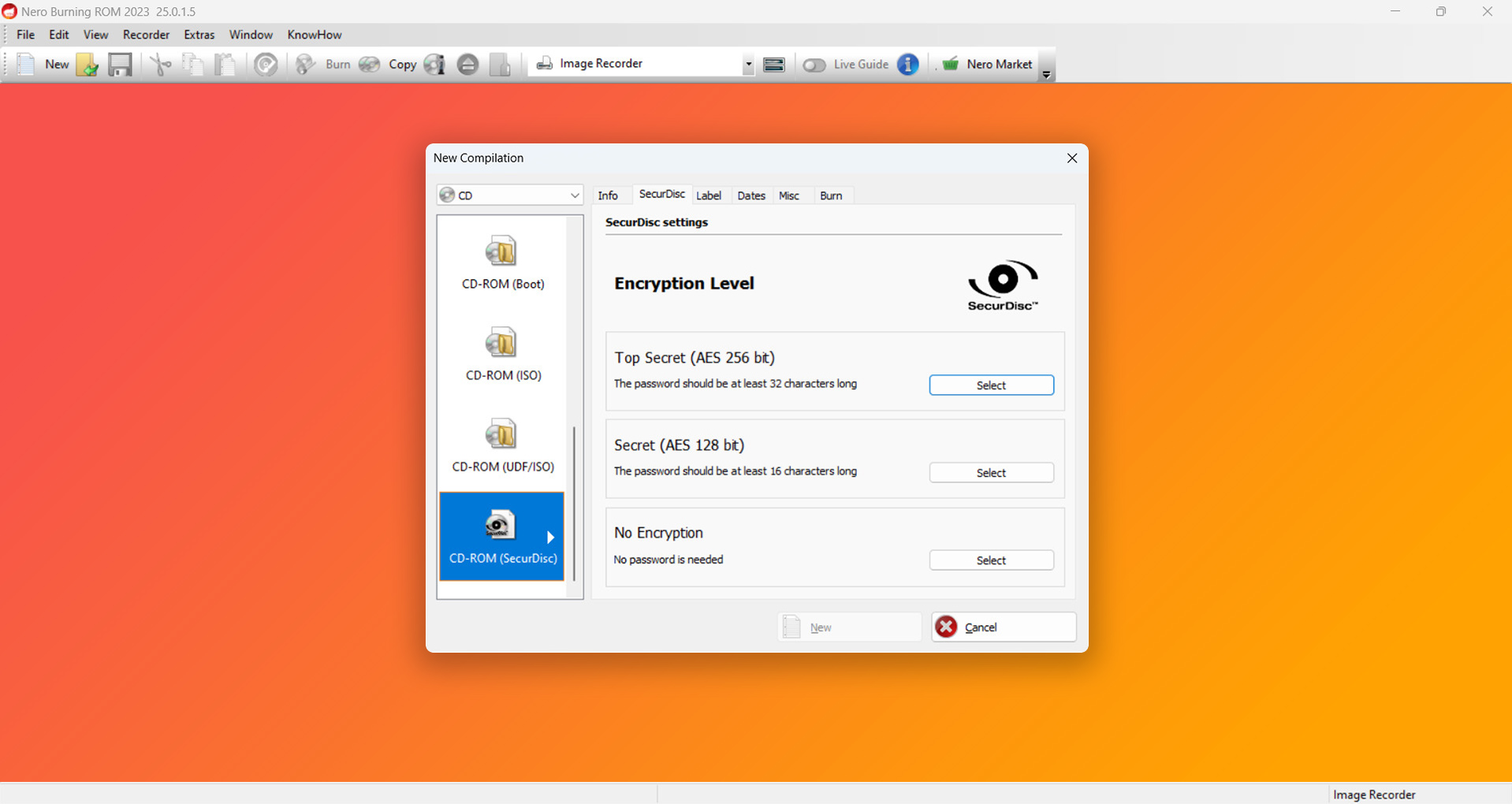 Nero Burning ROM:
Nero Burning ROM:
The ultimate burning program for all your needs!
Attribution-NonCommercial-ShareAlike – CC BY-NC-SA
Music and other media with an ‘Attribution-NonCommercial-ShareAlike’ license can be used in and altered for your videos, so long as you aren’t making money off those videos. You must also use this same license for the video you create using elements licensed this way.
If you license your video this way, people can use it or a portion of it in their project if they credit you. They must also use this same license for their video if they do. This protects you from the situation where a third person who never licensed your original content is making money off of it.
Attribution-NonCommercial-NoDerivs – CC BY-NC-ND
There aren’t many situations where you would be using media licensed this way in your YouTube videos. You can’t alter it, sync videos to it, or make money from any video that uses it.
You also probably shouldn’t use this license for your videos. ‘NoDerivs’ means there are not many ways people could use your content, except to repost full videos and steal your views.
Edit Video with the Most Excellent Video Editor

Richard Bennett
Richard Bennett is a writer and a lover of all things video.
Follow @Richard Bennett
Richard Bennett
Oct 26, 2023• Proven solutions

You might have noticed that, when you post a video, you get to choose how you want to copyright it: standard license, or creative commons. You’ve also probably noticed that when you looking for royalty-free music or stock footage a lot of it is licensed through creative commons.
So, what exactly are creative commons ?
To hold the copyright to a creative work means that you own it, and anybody who wants to use your work for anything (i.e. uses a song you composed in their YouTube video) has to do so on your terms. When you license your work through creative commons you do not give up your rights to your creative work (a common misconception).
When you use a creative commons license you are outlining the terms under which other creators are allowed to use your creations in their projects for free if they credit you for your work.
If you do not want anyone using your work for free in any context, you stick to traditional copyrighting.
But if you’ve created a piece of music, a photograph, or a clip that you wouldn’t mind other people using, potentially as a way to get your name out there, you might want to consider creative commons.
There are 6 different creative commons licenses. Which is right for you will depend on your answers to these two questions:
Are you okay with a creator making money off of something they create using your work?
Are you okay with a creator producing a derivative of your work?
To say ‘no derivatives’ is to say ‘I’m okay with people using it, so long as they don’t change it’. One example of a derivative is a techno remix of a song. If you are alright with other creators making derivatives of your work, you may also want to require them to ‘ShareAlike’. ShareAlike means that the creator of that techno remix of your song has to use the same creative commons license you used for your original to distribute the remix.
An example of a derivative someone might make of a YouTube video would be auto-tuning it to make a song or cutting up your video to make one that’s just ‘the funny parts’.
Here are the 6 creative commons licenses, and a chart you can use as a quick reference tool.
Attribution – CC BY
If you’re using music or other media with this license, all you need to do is credit the artist.
If you license your video this way, people can do whatever they like with any element of it (video or sound) so long as they credit you. I.e. if someone wanted to mute your clips and use you as stock footage in a bigger project, they could.
Attribution-ShareAlike – CC BY-SA
If you use music, photos, or any other media licensed this way, then you must both credit the artist and license your video this same way. Meaning, you can’t use YouTube’s standard license and must instead allow for others to use your work the way you are using the licensed media.
If you apply this license to your video, you’re saying you don’t mind people using all or portions of your video for their project so long as they allow others to use their work in the same way.
Attribution-NoDerivs – CC BY-ND
This one can get tricky.
Essentially, you can use media licensed this way so long as you don’t alter it or create a different version. For example, you can’t take a song licensed this way and use it in a mashup with another song. That part is clear. Where it gets tricky is when you want to use a song in your video.
Under normal copyright rules, using a royalty-free song in the background of your video would not count as creating a derivative. The definition of derivative according to creative commons is a bit broader and includes ‘syncing’. This means you can’t take an ‘Attribution-NoDerivs’ song and create any kind of music video for it.
For example, you can’t edit clips of yourself snowboarding so that they’re in sync with a song that has this license.
Whether or not you can play the song in the background of your vlog while you are speaking can be a bit of a grey area. In theory, it shouldn’t be a problem, but if you’re accessing the music through a social site like SoundCloud then it might be best to ask the artist first.
There’s no reason to license your YouTube videos this way. If people cannot alter your video, all that’s left is for them to repost it. Even though they’d also be crediting you, they’d still essentially be stealing views and ad revenue from your original video.
Attribution-NonCommercial – CC BY-NC
If you’re using stock footage, music, or stock photos licensed this way then you should still be able to monetize your video. YouTube monetization and commercial use are different things. However, there is a lot of confusion about this issue, and chances are the rights holder intends for this license to mean ‘no monetization’.
What you definitely could not do with a NonCommercial license is to use the song/other media in an actual commercial for a product, including product placement that a brand is paying you for.
If you license your video this way, people can use it in whatever way they like so long as they credit you and don’t try to make money off of it. Once again, that doesn’t mean they can’t use it in a YouTube video which they monetize because, technically, they’d be making money off of the ad that ran ahead of the video and not the video itself.
The thing to be careful of with this license is that it’s not ‘ShareAlike’. So, if you license your video this way somebody could use your clips as stock footage and then provide them - as part of their project – for free to a third person to use in a project they were making money off of.
Attribution-NonCommercial-ShareAlike – CC BY-NC-SA
Music and other media with an ‘Attribution-NonCommercial-ShareAlike’ license can be used in and altered for your videos, so long as you aren’t making money off those videos. You must also use this same license for the video you create using elements licensed this way.
If you license your video this way, people can use it or a portion of it in their project if they credit you. They must also use this same license for their video if they do. This protects you from the situation where a third person who never licensed your original content is making money off of it.
Attribution-NonCommercial-NoDerivs – CC BY-NC-ND
There aren’t many situations where you would be using media licensed this way in your YouTube videos. You can’t alter it, sync videos to it, or make money from any video that uses it.
You also probably shouldn’t use this license for your videos. ‘NoDerivs’ means there are not many ways people could use your content, except to repost full videos and steal your views.
Edit Video with the Most Excellent Video Editor

Richard Bennett
Richard Bennett is a writer and a lover of all things video.
Follow @Richard Bennett
- Title: [Updated] 2024 Approved Diving Deep Into the Income of Ajey (CarryMinati)
- Author: George
- Created at : 2024-08-01 07:47:47
- Updated at : 2024-08-02 07:47:47
- Link: https://facebook-video-share.techidaily.com/updated-2024-approved-diving-deep-into-the-income-of-ajey-carryminati/
- License: This work is licensed under CC BY-NC-SA 4.0.

 Jet Profiler for MySQL, Enterprise Version: Jet Profiler for MySQL is real-time query performance and diagnostics tool for the MySQL database server. Its detailed query information, graphical interface and ease of use makes this a great tool for finding performance bottlenecks in your MySQL databases.
Jet Profiler for MySQL, Enterprise Version: Jet Profiler for MySQL is real-time query performance and diagnostics tool for the MySQL database server. Its detailed query information, graphical interface and ease of use makes this a great tool for finding performance bottlenecks in your MySQL databases. 





 vMix 4K - Software based live production. vMix 4K includes everything in vMix HD plus 4K support, PTZ control, External/Fullscreen output, 4 Virtual Outputs, 1 Replay, 4 vMix Call, and 2 Recorders.
vMix 4K - Software based live production. vMix 4K includes everything in vMix HD plus 4K support, PTZ control, External/Fullscreen output, 4 Virtual Outputs, 1 Replay, 4 vMix Call, and 2 Recorders.



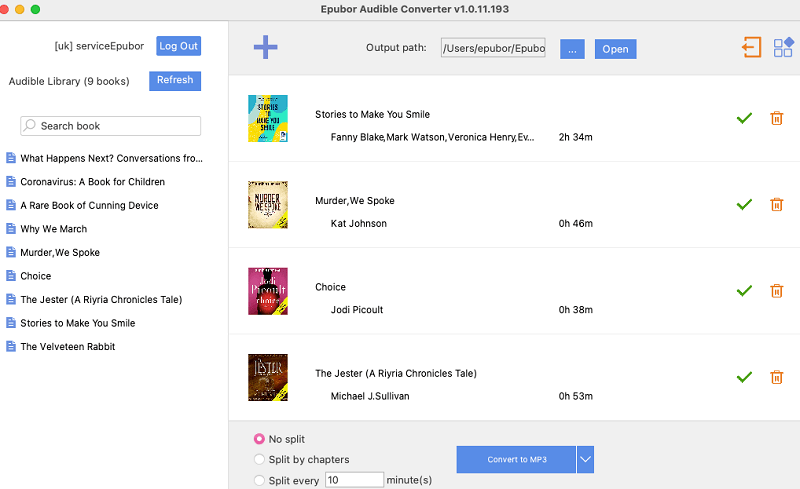 Epubor Audible Converter for Win: Download and convert Audible AAXC/AA/AAX to MP3 with 100% original quality preserved.
Epubor Audible Converter for Win: Download and convert Audible AAXC/AA/AAX to MP3 with 100% original quality preserved.
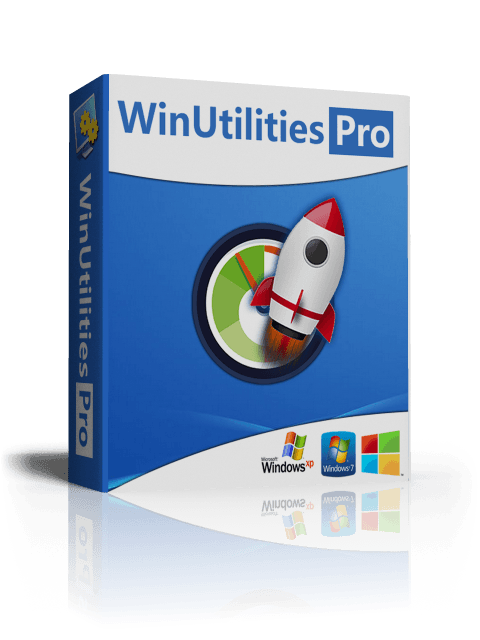 WinUtilities Pro
WinUtilities Pro
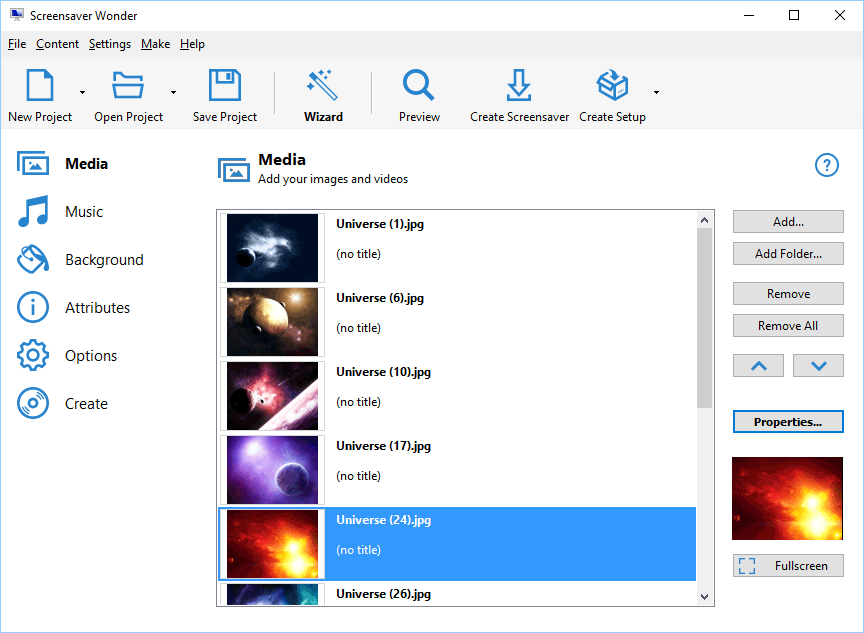 With Screensaver Wonder you can easily make a screensaver from your own pictures and video files. Create screensavers for your own computer or create standalone, self-installing screensavers for easy sharing with your friends. Together with its sister product Screensaver Factory, Screensaver Wonder is one of the most popular screensaver software products in the world, helping thousands of users decorate their computer screens quickly and easily.
With Screensaver Wonder you can easily make a screensaver from your own pictures and video files. Create screensavers for your own computer or create standalone, self-installing screensavers for easy sharing with your friends. Together with its sister product Screensaver Factory, Screensaver Wonder is one of the most popular screensaver software products in the world, helping thousands of users decorate their computer screens quickly and easily.
